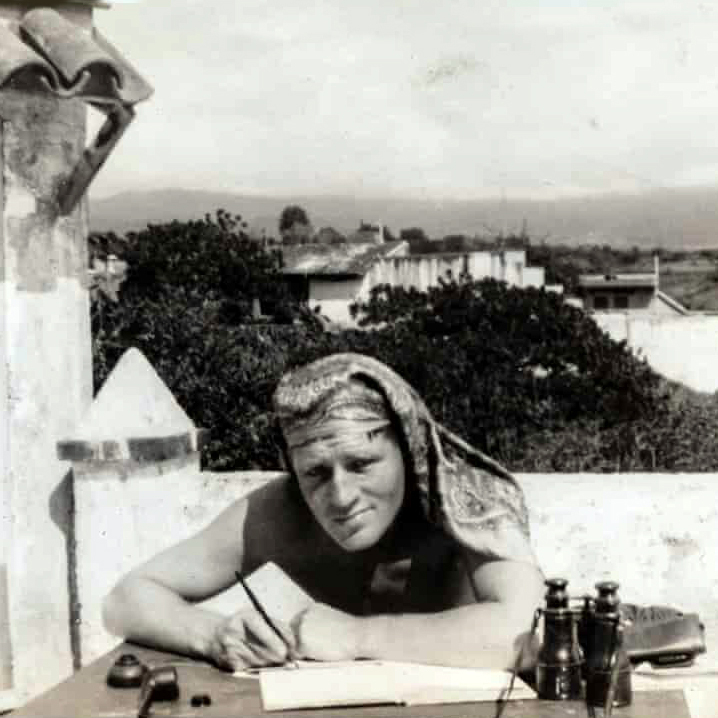The Way to Santiago (1941) is a heady hybrid of spy thriller, murder mystery, gun-toting adventure and sleek noir, playing out against the dusty landscapes of South America in the immediate aftermath of the Spanish civil war and the start of the second world war.
It follows the hapless agency writer, Englishman Jimmy Lamson, as he attempts to find the murderer of a fellow press man, hoping to find his own journalistic integrity along the way. The novel rattles through a kaleidoscopic array of Latin American vistas – sinister cantinas, crude railside shacks, glitzy palaces and dirt roads – all populated with characters you might find congregating on a Hollywood backlot: sad, red-lipped beauties, itchy-fingered assassins and clipped English gentlemen.

